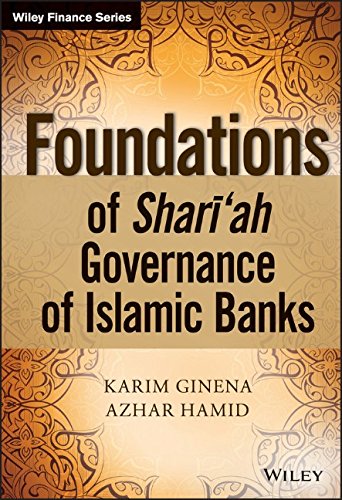

Most ebook files are in PDF format, so you can easily read them using various software such as Foxit Reader or directly on the Google Chrome browser.
Some ebook files are released by publishers in other formats such as .awz, .mobi, .epub, .fb2, etc. You may need to install specific software to read these formats on mobile/PC, such as Calibre.
Please read the tutorial at this link. https://ebooknice.com/page/post?id=faq
We offer FREE conversion to the popular formats you request; however, this may take some time. Therefore, right after payment, please email us, and we will try to provide the service as quickly as possible.
For some exceptional file formats or broken links (if any), please refrain from opening any disputes. Instead, email us first, and we will try to assist within a maximum of 6 hours.
EbookNice Team

Status:
Available4.7
20 reviewsDebate in the market on the extent of sharī'ah compliance of Islamic banks, their products, and activities has piqued stakeholders' interest. In Foundations of Sharī'ah Governance of Islamic Banks, Karim Ginena and Azhar Hamid explore the depths of sharī'ah governance to unravel its mysterious dimensions, and equip academics and practitioners with a solid understanding of the subject, which has become a serious challenge and thus deserves dedicated attention.
The authors make a strong case for the need to contain the sharī'ah risk that Islamic banks experience, and present a compelling argument for how this should be done. Ginena and Hamid propose a robust sharī'ah governance model that comprehensively tackles thisrisk, and helps improve the extent of sharī'ah compliance of market players. The authors detail the internal, external, and institutional arrangements needed to promote responsible sharī'ah governance, and critically analyze current laws, regulations, and industry practices on the topic. The chapters of the book do the following:
Through an effective treatment of each of these elements, and the way that they interact with one another, the book offers a fresh take on how robust sharī'ah governance of Islamic banks can be successfully accomplished. It is a comprehensive resource for academics, regulators, directors, lawyers, auditors, consultants, employees, and customers of Islamic banks interested in learning more about these challenges. This essential reading persuasively extends the discourse on the subject and addresses critical sharī'ah issues that have policy implications for decision makers in jurisdictions aiming to attract the fast-growing Islamic finance industry or increase their market share.